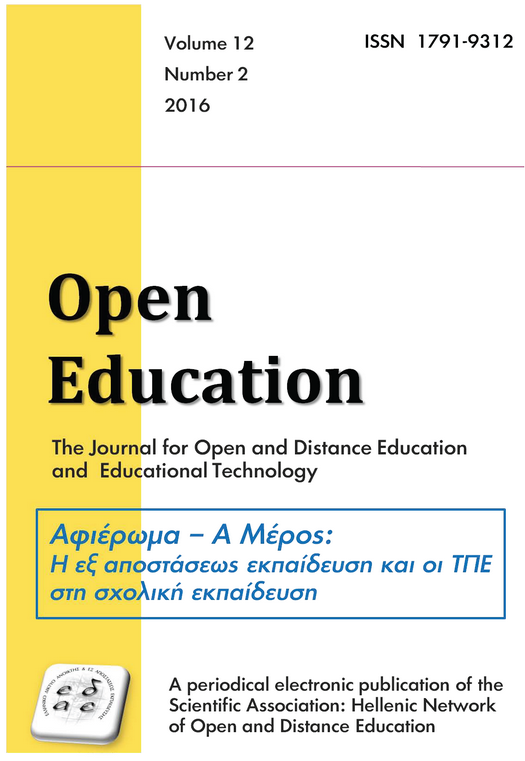Social Media in Greek K-12 education: A research model that explores teachers’ behavioral intention

Περίληψη
During the last decade we have witnessed a rapid growth of Web 2.0 technologies and especially the so-called online social media. Many people, from every age group but especially teenagers, participate in online communities, making new friends and exhibiting themselves and their interests in a huge international audience. It is extremely important for educational practitioners and researchers to successfully incorporate the dynamics of web 2.0 and social media in their practices. This is especially true for the teachers of K-12 education. The main aim of this study is to examine the factors that may affect teachers’ behavioral intention to use social media in their classes. Very little is known from teachers’ perspective and empirical work isvery limited, especially from Southern European countries. This research was setup in
order to develop and test a seven-factor model to explain the Greek teachers’
behavioral intention to use social media in their classes. Findings reveal that
Experience, Perceived Usefulness and Trialability have a significant impact while
Subjective Norms and Perceived Ease of Use have a more weak impact on teacher’s behavioral intention.
Λεπτομέρειες άρθρου
- Πώς να δημιουργήσετε Αναφορές
-
- Τεύχος
- Τόμ. 12 Αρ. 2 (2016)
- Ενότητα
- Μέρος πρώτο / Section 1


